The Rima Kallingal Interview | 'I'm Used To Dealing With Male Egos'
The actor, activist and dancer talks to Neelima Menon about her upcoming film Neelavelicham, which reinterprets a Malayalam classic; not wanting to be pigeon-holed; and what she seeks as an artiste.
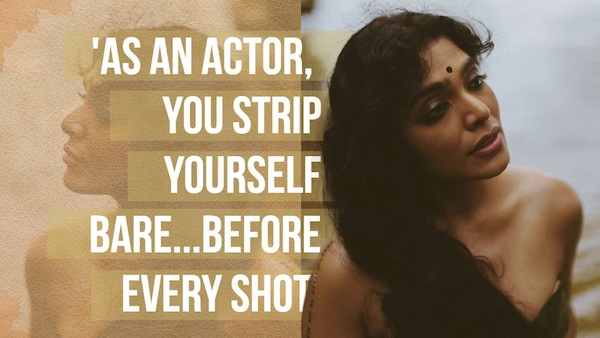
Photo by Aishwarya Ashok, via Facebook/@RimaKallingalOfficial
Last Updated: 02.57 PM, Apr 07, 2023
SINCE she made her film debut in 2009, Rima Kallingal has appeared in over 30 films, whilst keeping up her practice as a danseuse — and actively participating in the pioneering industry body, Women In Cinema Collective. Having built on her craft with every successive performance, Santhoshathinte Onnam Rahasyam (dir. Don Palathara; 2020) marks one of her finest turns. This month, Rima returns after a brief hiatus with Aashiq Abu’s Neelavelicham, which she has also co-produced. Edited excerpts from a chat with the actress:
Neelavelicham is said to be the official remake of Bhargavi Nilayam (1964). Why did you pick the classic?
Let’s start by saying that it is not a remake per se. Basheer [Vaikom Muhammad; the noted writer] is the factor that attracted us to this film. Also, this is one of the biggest hits that the Malayalam industry has ever seen... It was a production marvel that excelled in all departments. Everybody who has been part of Malayalam cinema has been enamoured by this work of art. I think Malayalees' love for Basheer is omnipresent. Moreover, this is the first horror film in Malayalam. When we started working on the script we realised that most of the tropes that come with the visual grammar of horror films started with Bhargavi Nilayam… like the white sari for instance. There is a very solid reason as to why it is used, and we are showing it in the film.
You are the co-producer as well as the lead actor in the film. What’s the biggest takeaway for you from the experience?
I don’t know if I would ever be able to act in another film of this stature. As an artiste, this is a big break for me. Especially from the kind of films I have been doing. We are often mocked for making only realistic films. From there, reaching this surreal state was one hell of a ride. The romance that Basheer has always put forward about life, about all living beings and flowers… he has even romanticised his hallucinations, pain and madness! From a post-COVID era when you are battling so many sad things, it was great to cut off from everything and go into this surreal space, and romance life, love and relationships.
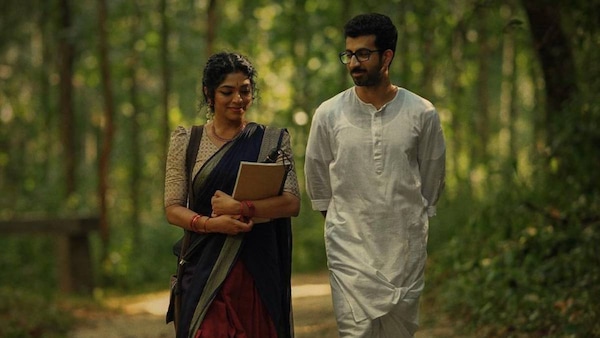
What is your reading of [the character of] Bhargavi?
That was quite tricky. We are looking at a script written in the ‘60s. So she has to be a woman who reflects the time, era, values and cultural implications that Kerala would have carried. But at the same time, she is Basheer’s heroine, and therefore timeless. [Basheer’s heroines] are not coy, and know what they want. At the same time, Bhargavi was so vulnerable. I don’t think I can ever put myself in that kind of vulnerable space where she had the heart to profess her love, ask for it to be returned… where she went ahead and trusted somebody with all her heart, without thinking of the repercussions. It is a very utopian space. I don’t know whether as contemporary 21st-century women, we can even get there anymore. She is a fantasy.
Did it take time for you to get into the psyche of Bhargavi?
I was a bit scared. That vulnerability especially… because we have amassed all these fortifications. We have pulled our real selves into a shell; everyone is living such a controlled life. Bhargavi was about completely letting go. Very few characters impact you that way in real life, so I think I got into her psyche more than the other way around.
Making a period film in this Google era can be taxing. How was it to be on the set of a period film?
It was surreal. I can say that Baburaj and Bhaskaran masters handheld us through that era with their soulful melodies. We used to call ‘Thamasamende Varuvan’ our national song! We held on to the songs to get into the mood and era. I was excited to experience such a dance song with an old-world charm to it. Rajamouli has taken our songs to the Oscars, and I am quite proud of that element in our movies. Also, Basheer’s script was so detailed — emphasising the soundscape and colours. We did extensive pre-production work and Jyothi Sankar [art director] had this whole bible ready. Since it was difficult to cut out the modern sounds we decided to avoid sync sound. The Basheerian soundscape was specially created — the sounds of birds and animals. I think such careful scrutiny by the audience also keeps us on our toes. When the audience demands more is when we give more. That’s why Malayalam cinema is where it is.
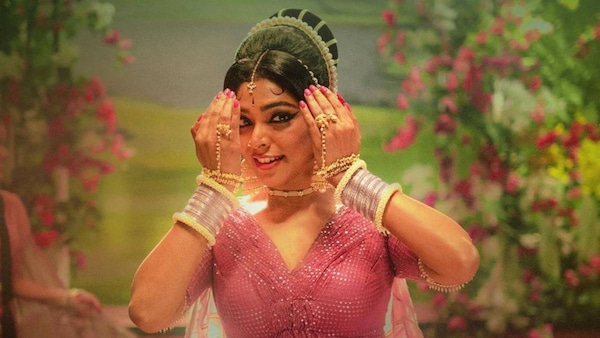
I have always felt that Aashiq Abu brings out the best in you, be it 22FK, Rani Padmini or Virus.
We have a very healthy competition going on. There is a lot of give and take. Everything comes in when you are personally connected [Rima and Aashiq married in 2013]. We do have big arguments and that’s fine too. Over time, it is important to have clear boundaries. At the end of the day, he is a director and I am an actor, so I can’t take him for granted. And vice versa. It is important to respect that boundary as it only adds to the performance.
Does he help you to rediscover yourself as an artist every single time?
Yes, also because he knows me inside out. He can push me more. So he will tell me during a shot to show a side of my personality only he is privy to. That sort of nuance can help me. But at the same time, I go on my own trip as an artist. Artistes can be emotionally messy. That is something Aashiq handles very sensitively. Every space I get like that is sacred.
Ideally isn’t that such a space every artist should have?
Yes. As an actor, you completely strip yourself bare. You are stark naked when you are giving your shot. So when we get spaces where we can be that, we don’t need to overcome fear or insecurity. You can directly access your emotion. To build that is a production and director’s responsibility.
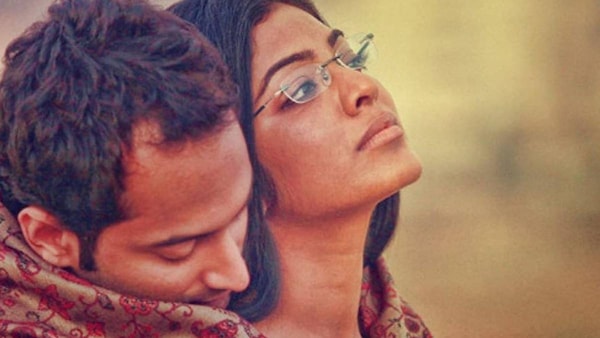
I think Aashiq and the gang were also instrumental in creating that space of freedom for actors in Malayalam cinema.
Definitely. The discussion starts during scripting. There is a space for communication now. It is no longer about someone sitting at the top of the hierarchical order and giving commands. We can ask questions, and we can disagree. But we also need to understand that if it is not a singular vision, it might get diluted. I do respect that vision. So it is all about contributing to that vision.
When it comes to asking for a role, unlike male actors, do female actors have to draw a line as the reactions can often be dodgy?
It is still dodgy. But I would want to put myself out there and ask for roles. I would dodge the obstacles and still ask. But I haven’t done it yet. If I had, I would have more work. Many thought I wouldn’t do movies after marriage and that I won’t work outside of OPM [their production house]. I don’t even get that question. A lot of people put you in these circles. I want to do all kinds of films, including an all-out commercial film.
I thought Maria in Santhoshathinte Onnam Rahasyam was perhaps your finest to date. You are also credited for dialogues.
Since it was a single-shot film, Don asked us if we could do a 10-day rehearsal camp. He sent an assistant and a fully bound script. We did that and then we met. He started recording our reading sessions. He explained the situation and asked us to react to it. After watching the recording, he said, ‘We will stick to your lines’... That was another level of freedom. Though of course, he was particular about certain things. Though I felt since Maria was PMSing in reality, she might cry, Don disagreed and said she is beyond that. She is done with the guy and at this stage, she is only angry and nothing else. But I felt there won’t be such an absolute emotion. In Natya Shastra, we have these transient emotions before we reach anger. But Don was very clear that she was angry. He gave me a lot of liberties and gave us dialogue credits without [us] asking.
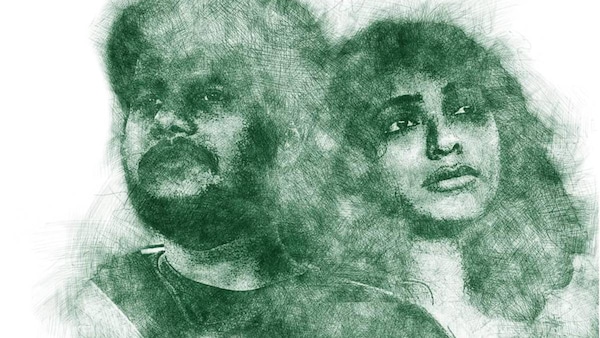
Did that performance surprise you?
Yes. That film was a lifesaver for me as an artiste. It came at a point when I was asking myself ‘what next’. It was liberating and reassuring to know that my understanding of a character was so accurate.
Do you think it is important to have a woman’s perspective in scripts?
I know a lot of screenwriters who reach out to me to get a female perspective. It is not about being politically correct but about not being politically incorrect. When we narrate a story we have to add many elements to it that might not be politically correct, but we can no longer afford to make something regressive as heroic because art is way more powerful. It reaches every platform today, touches everybody’s lives and slowly adds to our value systems. As artistes, we have to understand the power this medium holds. I think it is important to go beyond tokenism when it comes to female representation.
Is it difficult to say no as an artiste?
I can clearly say that something doesn’t connect with me because I don’t want to spoil someone’s film. I am used to dealing with male egos. You are conditioned that way because they occupy the larger space. You never get immune to it though. You are always irritated by it.
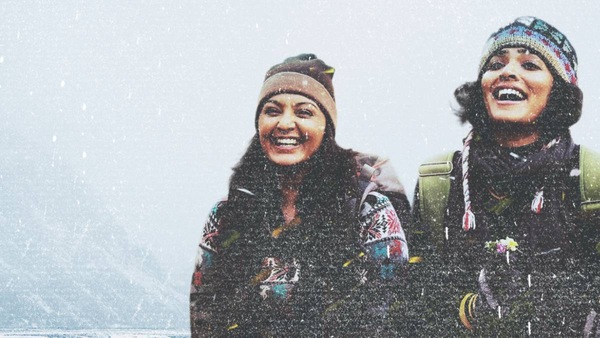
During the earlier days, actors retained some mystery. Now they are required to be all over the place for film promotions. Does it put you under pressure?
Yes. I really wish we didn’t have social media at times. I love the internet and all but this Instagram and putting yourself out there, constantly having [online] presence can be taxing. I try to be creative about that so that I add something to it. That whole mystery of larger-than-life is waning from what it used to be. Having said that, I find it counterproductive also. I feel as an artiste solitude is so important. To cut off, reflect and recharge your batteries. When I come back from a public event, I am subliminally taking [in] the energies of so many people around me, whether I want to or not. Just dwell on what happened. Give some time to every artiste.
Off-screen, you have a fiery feminist image and people expect you to speak in a certain way. Does it get to you at times?
There is this stereotype, and you are boxed into that, and you have to perform accordingly. If I am vulnerable, they call me fake. That’s why I want to do interviews only when a film is there. I really want them to see me as an artiste who is there to entertain you. Having said that, I want to be a responsible social being as well. But that is only one part of me. Don’t box me and isolate me as this angry, raging woman all the time.
What’s your ambition as a dancer and actor?
As a dancer I have never wanted to be stuck in a single medium. I started as a classical dancer and later learned Indian contemporary. So I went from a dance form that required rigid rules to a form that had no rules. Even veteran dancers are open to debunking such rules. I am super greedy as an artiste. I don’t think I have been able to explore as much as I wanted to. Maybe I should start connecting with interesting filmmakers out there. I don’t want to limit myself.

 Premium
Premium